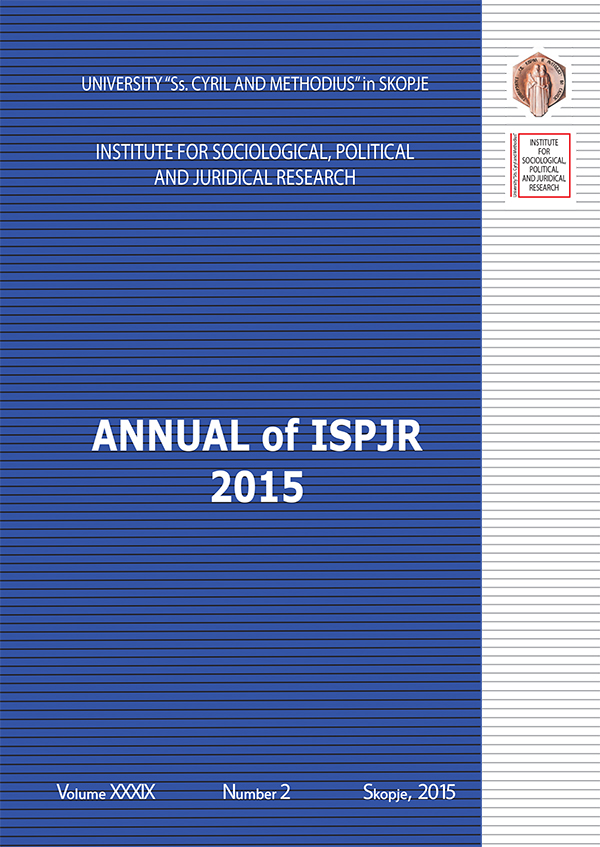NEW TRENDS IN IMPLEMENTING ORGANIZATIONAL CHANGES IN THE PUBLIC ADMINISTRATION IN THE REPUBLIC OF MACEDONIA - THE PARTICIPATIVE CONCEPT
NEW TRENDS IN IMPLEMENTING ORGANIZATIONAL CHANGES IN THE PUBLIC ADMINISTRATION IN THE REPUBLIC OF MACEDONIA - THE PARTICIPATIVE CONCEPT
Author(s): Andriana Skerlev-ChakarSubject(s): Public Administration, Labor relations, Organizational Psychology, EU-Accession / EU-DEvelopment
Published by: Институт за социолошки и политичко-правни истражувања
Keywords: participation; employee perception of the style of management; public administration in the Republic of Macedonia;
Summary/Abstract: Successful implementation of organizational changes in public administration is key to increasing the effectiveness and accountability, as well as the performance, of public administration in the Republic of Macedonia. It is the modernizing agenda for change which reflects the civic and social aspirations of Macedonian public administration to equal the quality and competitiveness of the best performing EU administrations. New methods are needed to manage the organization of public administration. The application of an appropriate participatory concept for successful implementation of organizational change in public administration as a prerequisite for greater efficiency and accountability, encourages the public sector employees to participate in organizational change. It is argued that this can lead to a welcome reduction in the impact and influence of the state on these activities by developing the professionalism, expert knowledge and accountability of public administration in the Republic of Macedonia. This requires political will as well as specific legal amendments, to ensure successful implementation of a participatory style of management in public administration. In applying an appropriate participatory concept of participation, decision making is not separated from the process of organizational change, but is an integral part of the employees’ activities. This transfer and devolution of the decision-making power will leave senior managers free from the burden of making controversial decisions while retaining strategic direction. Sharing responsibility for organizational change with employees directly involved in its implementation will reduce overall costs, increase the efficiency of the planning process, make it more rational and responsive to all parts of the organization, and reward and incentivize staff with opportunities for advancement in a better functioning organization which they have helped create.
Journal: Annual of the Institute for Sociological, Political and Juridical Research
- Issue Year: XXXIX/2015
- Issue No: 2
- Page Range: 39-55
- Page Count: 17
- Language: English

